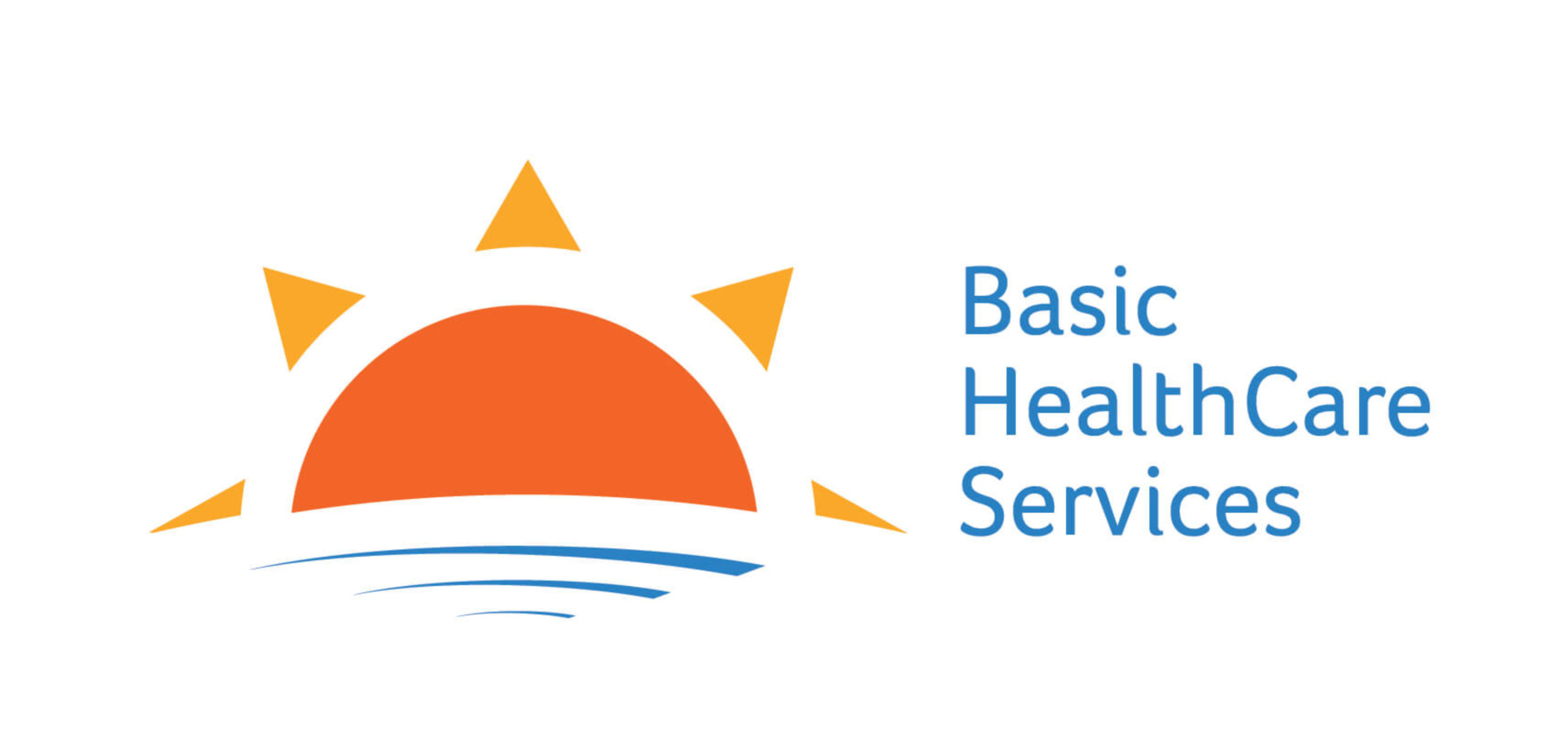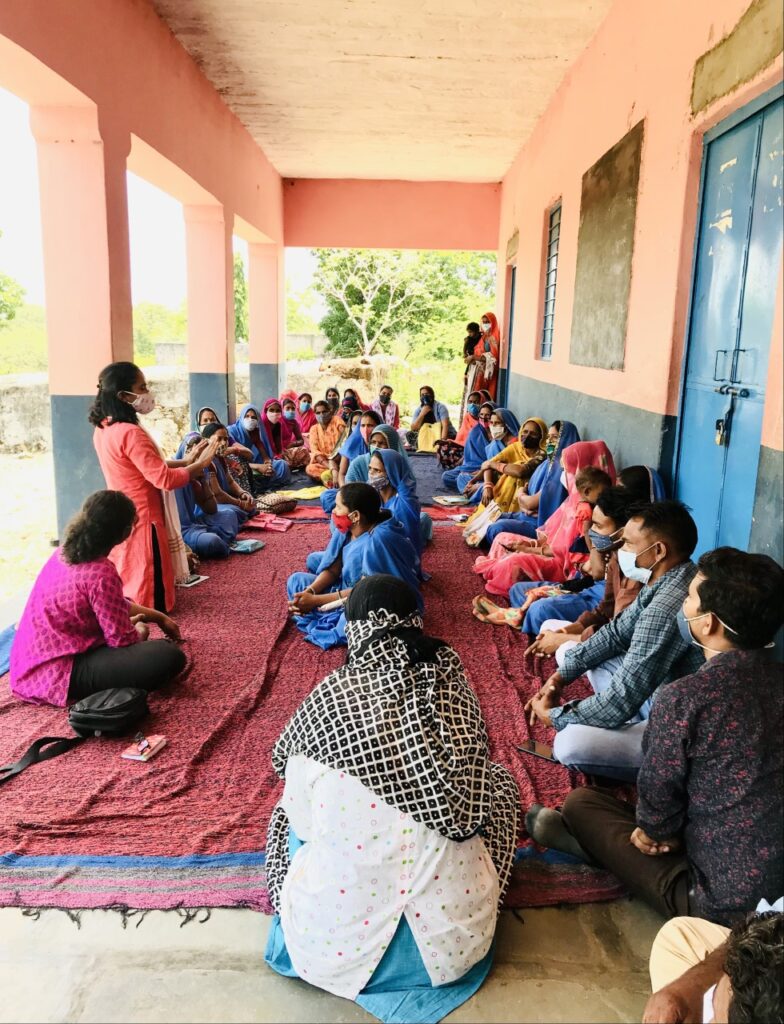Written by Priyanshu K.
ASHAs (Accredited Social Health Activists) have been instrumental in managing the pandemic across the country. They carried out several responsibilities in the past year – identifying people showing symptoms of Corona, linking them to quarantine facilities or ensuring home isolation, providing them with medicines and following up on them. A report by the Independent Panel for Pandemic Preparedness and Responses (IPPPR), set up by WHO cites ASHAs in India for engaging in community engagement, a successful strategy for responding to COVID-19.
While that might be true, the involvement of the ASHA workers in COVID-19 response in India has also rekindled the debates around their better recognition. Many of them who have been working for long hours with high risk have not been given protective gear like masks. In a series of meetings with ASHA workers from Gogunda block of Udaipur district in Rajasthan, we found that these complaints hold true, but there is more that requires attention.
Lack of trust on ASHAs during COVID-19
“Main 2005 se ASHA hun. Hamare gaon mein koi bhi beemari ke liye pehle mere se baat karte the log. Corona ke baad logon ka vishwas aadha ho gaya hai”, shared Seeta*. During the second wave of pandemic, this region of Southern Rajasthan saw a lot of cases (not reported officially, since many did not get tested). Even the most remote villages had two or three sick people in every household. However, when ASHAs reached out with medicine kits people would refuse.
Seeta shared how everywhere she went, the initial responses of the villagers would be “Koi bimari nahi hai” or “Yahan abhi sab theek hai” even when people looked evidently unwell. “I was threatened by a man to leave the village immediately. He was sitting with a stick” said Romi*, another ASHA worker in a village of Gogunda.
The fears and misconceptions around the disease, medication and the vaccine are too many in the region. My colleague wrote this article about the kind of fears and misconceptions grappling the community members. There were multiple instances of people trying to escape from the ASHAs, lying to them about their health status, or at times even threatening them to stay away.
Basic Healthcare Services a primary healthcare organisation working with tribal, heavily dependent on migration for livelihoods population in Southern Rajasthan, along with its partner organizations, Aajeevika Bureau and Shram Sarathi decided to respond to health crisis through their network of community volunteers. The volunteers identified sick patients, counselled them on home care and provided medicine kits.
It would be untrue to say that the volunteers did not face resistance from the community. However, we also noted that in some areas, the volunteers became popular, and people openly shared that they would not accept the ‘sarkar wali dawai’, but the ‘sanstha wali dawai’ brought them relief.
It is important to note that the ASHAs are local women, who are meant to be the bridge between ‘samaj’ and ‘sarkar’. They are representatives of the villagers who also act as the link between the community and the public health system. They are women trained in various aspects of health care, meant to be the first point of contact for health related concerns in their villages. Then why did so many people refuse care from ASHAs who are just like community volunteers, and respond to the community volunteers from NGOs instead?
While it could be that some ASHAs were never active or seen as ‘health care agents’, we did hear from them that many were serving exactly the assigned role before the pandemic. They had stories of accompanying women for delivery when they were referred to bigger hospitals, of following up on a patient with tuberculosis for months together, of families running to their house when their child had fever.
What led to this change during pandemic?
When the first wave of COVID-19 hit India, during the nationwide lockdown, the ASHAs were a part of the ‘corona surveillance teams’ which ensured that migrants returning to their villages from cities were quarantined before going to their homes. In Southern Rajasthan, where we see a huge exodus of migrant labourers to cities like Surat, Ahmedabad and Mumbai, there were a large number of people returning to the villages during this period. Many underwent extremely difficult situations – of not having a source of income to sustain in the cities, of having to figure out ways to reach back home, and even walking for days together!
The ASHAs were probably started to be seen as ‘others or not their own’ when they came to put up quarantine stickers outside their homes in villages where illness did not exist at that time, but hunger and poverty did. There was a lot of stigma around ‘Corona’ in these villages, there was a lack of explanation to the already fearful population about the importance of isolation. Putting people in quarantine centers which did not have decent facilities led to tension between the villagers and people like the ASHAs who were facilitating quarantine.
During the second wave, people were actually unwell unlike the previous year, but the experiences from before added with many misconceptions and fake news around COVID-19 led to huge mistrust and fear towards ASHAs. Their focus during this period shifted towards providing home care and encouraging people to get vaccinated. This brought some attention to the importance of ‘trust’ but largely the expectations from them remained to be around ‘targets’.
The ASHAs were conducting surveys on people showing symptoms of Coronavirus. “During surveys, our supervisors would ask for the number of people we visited in a day”, shared an ASHA. Irrespective of the resistance, the prevalence of fake news and subsequent fear around the virus in their villages, they were expected to cover large areas in short duration, completing one survey after another. This meant that the time an ASHA spent with people in addressing the myths and fears, offering support and building trust had to be compromised upon!
What can be done differently?
Small things like spending more time, understanding the fears of locals and responding accordingly, providing context specific examples and above all, building on the benefit of being an ‘insider’ make a huge difference. We also heard success stories from ASHAs who were doing so. “Initially, we were under the pressure to get more and more people vaccinated, so we lied that their pension and ration will be stopped if they do not get vaccinated, but we realised it was only causing harm. So now I explain to them the importance of the vaccine in protecting us from the disease, how it works in our body, provide examples of the ones who are already vaccinated in their village and listen to their doubts patiently and it has made a difference”, shared Indira*.
When the ASHAs share their own example of being vaccinated, people respond that they get ‘good’ vaccines since they are government employees and the commoners get ‘bad’ ones in order to kill them. One of them shared how when people say that they are ‘employees’ and are paid to do this job, it hurts her since the incentive is very low and barely motivates her to work. Duties like conducting surveys, facilitating quarantine without much quality check or education, meeting vaccine targets which are given to the ASHAs make them more of a ‘worker’, and this distances them from being the ‘activist’ in ASHA.
The consequences of them being perceived this way are beyond the pandemic. People hesitate approaching ASHAs for support with other health issues as well. “When I went to a neighbours house the other day to check on their new born baby, they were scared that I was coming to look for Corona symptoms”, shared Devli*.
In remote areas like the tribal villages of Southern Rajasthan, where there is high malnutrition, diseases like tuberculosis and poor maternal and neonatal health but also poor care seeking behaviours, links like the ASHAs play an important role which should not be lost.
It is interesting that an initial prototype of ASHA program in Chattisgarh was called ‘Mitanin’ which means female friend. As we realise their importance and power in mobilising, facilitating and acting as an agent of ‘change’ at the community level from our experiences with COVID- 19, a lesson to learn is that we do not do anything that can affect the trust people have on ASHAs .That we remember that they are from the community, for the community, and not ‘substitute workers’ in the local health systems. That we ensure that the approach of ASHAs is people centric and not system centric.
*Names changed to maintain confidentiality

